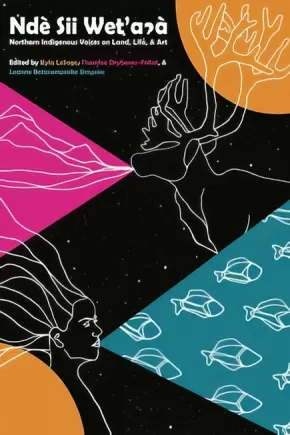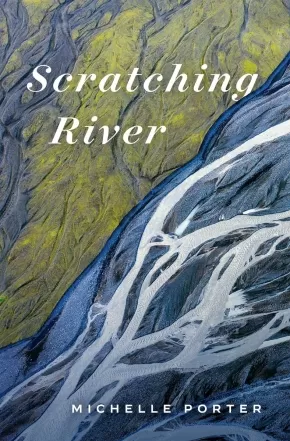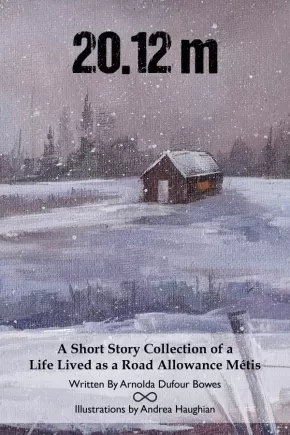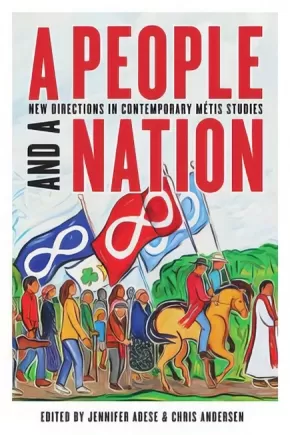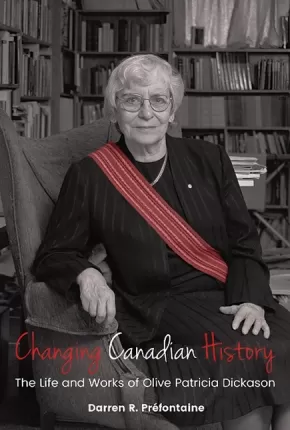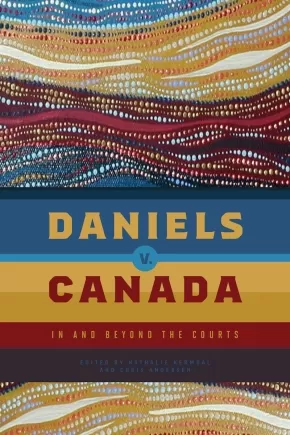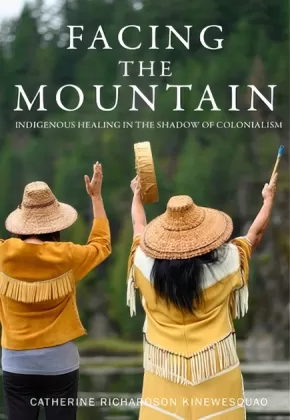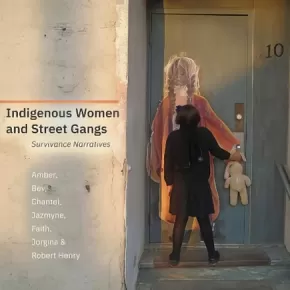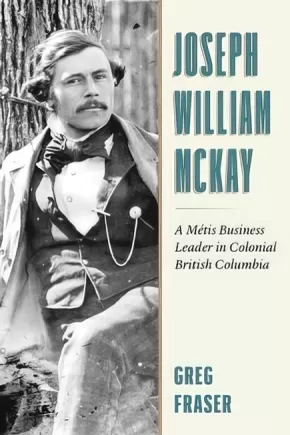
Métis
46
-
60
of
104 Results;
Sort By
Go To
of 7
Nahganne: Tales of the Northern Sasquatch (3 in Stock)
$35.00
Format:
Paperback
Text Content Territories:
Indigenous Canadian;
Reading Level: N/A
ISBN / Barcode: 9781988824598
Synopsis:
Synopsis:
Nahganne: Tales of the Northern Sasquatch is about giant bipedal, forest dwelling, hirsute hominoid entities. For as long as humans have been around the North, the activities of these giants have been observed in many places, but only a few people have taken the time to share their stories of coming in contact with these forest giants. In the North they have been given many regional names; although they are commonly known as Nahganne or Sasquatch. The book presents activities occurring in the North such as sightings, strange vocals, discovery of large human-liked footprints, strange animal reaction, and weird tree events. It also contains bits of history about northern North America plus details about the First Nation Peoples and their history. In the book, Red Grossinger investigates and analyses the many reports that he has received with details about the encounters and occurrences.
Reviews
"A tale as old as the North. We’ve heard of Nahganne for many generations. The North is under-explored and we don’t know what’s out there. " —Lawrence Nayally, CBC North
"As an academic I appreciated the scientific analyses of the various Sasquatch sightings and the attention paid to details. As a First Nations person I enjoyed the storytelling qualities and humanistic approach of the book. Even though I have delved into the topic at various times myself, I have been surprised by how many sighting there have been! I have friends and family that have seen the Sasquatch, and this book assures that many of the stories won’t be lost through time. I applaud Mr. Grossinger for adding an important aspect of Yukon people’s experiences to local history." — Ukjese van Kampen PhD
"Red Grossinger has put together an enthusiastic and insightful inspection of Nahganne or the Northern Sasquatch using intriguing real-life examples, many of which he investigated himself. He believes Nahganne is scientifically “obvious” and details a history of research and encounters that date back more than a century. His only request of readers is to keep an open mind. When you finish this book, perhaps you too will believe." — John Firth, author of The Caribou Hotel: Hauntings, hospitality, a hunter and the parrot and One Mush: Jamaica's Dogsled Team
Additional Information
288 pages | 6.00" x 9.00" | 15 b&w illustrations | Paperback
288 pages | 6.00" x 9.00" | 15 b&w illustrations | Paperback
Ndè Sii Wet'aà: Northern Indigenous Voices on Land, Life, & Art
$24.00
Format:
Paperback
Text Content Territories:
Indigenous Canadian; Inuit; Inuvialuit (Mackenzie Inuit); First Nations; Tutchone; Northern Tutchone; Dene; Tlicho (Dogrib); South Slavey (Deh Cho); North Slavey (Sahtu); Kaska Dena (Denek’eh); Denesuline (Chipewyan); Sayisi Dene; Cree (Nehiyawak); Métis; Indigenous American; Alaska Native; Dena?ina (Tanaina); Alutiiq (Sugpiaq);
Grade Levels: 12; University/College;
ISBN / Barcode: 9781927886625
Synopsis:
Synopsis:
Ndè Sii Wet'aà: Northern Indigenous Voices on Land, Life, & Art is a collection of essays, interviews, short stories and poetry written by emerging and established northern Indigenous writers and artists. Centred on land, cultural practice and northern life, this ground-breaking collection shares wealth of Dene (Gwichʼin, Sahtú, Dehcho, Tłı̨chǫ, Saysi, Kaska, Dënesuiné, W?ìl?ìdeh ) Inuit, Alutiiq, Inuvialuit, Métis, Nêhiyawak (Cree), Northern Tutchone, and Tanana Athabascan creative brilliance. Ndè Sii Wet'aà holds up the voices of women and Two Spirit and Queer writers to create a chorus of voices reflecting a deep love of Indigenous cultures, languages, homelands and the north. The book includes a series of pieces and interviews from established northern artists and musicians including Leela Gilday, Randy Baillargeon (lead singer for the W?ìl?ìdeh Drummers), Inuit sisters, song-writers and throat singers Tiffany Ayalik and Inuksuk Mackay of Piqsiq, Two Spirit Vuntut Gwitchin visual artist Jeneen Frei Njootli, Nunavik singer-songwriters Elisapie and Beatrice Deere and visual artist Camille Georgeson-Usher. Ndè Sii Wet'aà also includes writing from well-known northern writers Siku Allooloo, T'áncháy Redvers (Fireweed), Antione Mountain (From Bear Rock Mountain), Glen Coulthard (Red Skin, White Masks), Catherine Lafferty (Northern Wildflower, Land-Water-Sky) and Lianne Marie Leda Charlie, in amongst the best emerging writers in the north.
Additional Information
264 pages | 6.00" x 9.00" | Paperback
Reconciliation and Indigenous Justice: A Search for Ways Forward
$32.00
Format:
Paperback
Text Content Territories:
Indigenous Canadian;
Reading Level: N/A
ISBN / Barcode: 9781773635194
Synopsis:
Synopsis:
The horrors of the Indian residential schools are by now well-known historical facts, and they have certainly found purchase in the Canadian consciousness in recent years. The history of violence and the struggles of survivors for redress resulted in the Truth and Reconciliation Commission, which chronicled the harms inflicted by the residential schools and explored ways to address the resulting social fallouts. One of those fallouts is the crisis of Indigenous over-incarceration. While the residential school system may not be the only harmful process of colonization that fuels Indigenous over-incarceration, it is arguably the most critical factor. It is likely that the residential school system forms an important part of the background of almost every Indigenous person who ends up incarcerated, even those who did not attend the schools. The legacy of harm caused by the schools is a vivid and crucial link between Canadian colonialism and Indigenous over-incarceration. Reconciliation and Indigenous Justice provides an account of the ongoing ties between the enduring trauma caused by the residential schools and Indigenous over-incarceration.
Reviews
“David Milward provides a clear-sighted and accessible engagement with the challenge of Indigenous over-incarceration and the continuing legacy of Indian Residential Schools, using compelling examples to present a pathway for doing justice better in Canada.” — Andrew Woolford, author of The Politics of Restorative Justice and Professor, Department of Sociology and Criminology University of Manitoba
“Essential reading for anyone who wants to understand how the Canadian criminal justice system fails Indigenous people and how Indigenous Justice can, under the right conditions, be fairer, less expensive and more effective.” — Kent Roach, Professor of Law, University of Toronto
Educator Information
Chapter 1: The Legacy of the Residential Schools
Chapter 2: Different Views of Crime
1. Theoretical Constructions of
2. Constructions of Crime and Justice Policy
Chapter 3: The Seeds of Intergenerational Trauma
1. Stories and Studies of Trauma
2. Victimized by the Residential Schools
3. Abuse All Around: School and Home
4. Subsequent Substance Abuse
5. Mental Health
6. Racism in and outside of Residential Schools
7. Loss of Culture
8. Deficient Parenting
Chapter 4: Intergenerational Trauma and Crime
1. Intergenerational Domestic Violence
2. Intergenerational Sexual Abuse
3. Poverty
4. Child Welfare
5. Substance Abuse in Later Generations
6. FASD
7. Multiple Traumas
8. At a Community Level
Chapter 5: Reconciliation So Far
1. What is Meant by Reconciliation
2. The Calls to Action and Indigenous Justice
3. Reconciliation Moving Forward
Chapter 6: The Status Quo is Not Reconciliation
1. The Settlement Agreement
2. The Aboriginal Healing Foundation
3. The Problem with Deterrence
4. Punishment as Retribution
5. Indigenous-Specific Sentencing
6. Need for More Comprehensive Resolution
Chapter 7: Preventative Programming
1. Justice Reinvestment and Long-Term Savings
2. Preventative Programming as Social Reparations
3. Indigenous-Specific Preventative Programming
Chapter 8: Arguments for Indigenous Criminal Justice
1. Comparing Indigenous Justice to Restorative Justice
2. Why We Need Alternatives to Incarceration
3. Greater Victim Inclusion
4. Encouraging the Offender to be Responsible
5. Repairing Relationships
6. More Effective Than Incarceration
Chapter 9: Arguments against Restorative Justice
1. Power Imbalances
2. Getting Off Easy
3. Doubts about Greater Efficacy
4. Divergence of Interests between the Participants
5. Not Taking Harm Seriously
6. Economic Concerns
Chapter 10: Ways Forward for Indigenous Justice
1. Procedural Protections
2. Making Indigenous Justice More Effective
3. Indigenous Justice and Offender Responsibility
4. Will No Progress Be Made?
Chapter 11: Indigenous Corrections and Parole
1. The Theory of Indigenous Healing in Prison
2. Canadian Correctional Law
3. Does It Work?
4. Lack of Resource Commitment
5. Security Classification and Parole
6. Risk Assessment and Parole
7. Indigenous Gangs and Parole
Chapter 12: Reconciliation in the Future
Additional Information
240 pages | 6.00" x 9.00" | Paperback
Scratching River
$24.99
Format:
Paperback
Text Content Territories:
Indigenous Canadian; Métis;
Reading Level: N/A
ISBN / Barcode: 9781771125444
Synopsis:
Synopsis:
Scratching River braids the voices of mother, brother, sister, ancestor, and river to create a story about environmental, personal, and collective healing.
This memoir revolves around a search for home for the author’s older brother, who is both autistic and schizophrenic, and an unexpected emotional journey that led to acceptance, understanding and, ultimately, reconciliation. Michelle Porter brings together the oral history of a Métis ancestor, studies of river morphology, and news clippings about abuse her older brother endured at a rural Alberta group home to tell a tale about love, survival, and hope. This book is a voice in your ear, urging you to explore your own braided histories and relationships.
Reviews
"Michelle Porter’s Scratching River is a stunning and ruminative poetic work of creative non-fiction that moves across time, geography, Métis history, and kinship. Porter honours her Métis family and ancestors through past, present, and future poetics. The interwoven narratives wrap around Porter’s mother, Porter’s own story as a daughter and sister, and her relationship with her older brother, who was diagnosed as schizophrenic and autistic, and abused in a rural Alberta group home. Scratching River illustrates the powerful journey of reconciliation, as Porter’s family reconnects amongst their ongoing movement, and relocation to find their way back to the river they share." — "Shannon Webb-Campbell, author of Lunar Tides and I Am a Body of Land"
Additional Information
184 pages | 5.25" x 8.00" | Paperback
Standing in a River of Time
$19.95
Format:
Paperback
Text Content Territories:
Indigenous Canadian; Métis;
ISBN / Barcode: 9781772013795
Synopsis:
Synopsis:
Standing in a River of Time merges poetry and lyrical memoir on a journey exposing the intergenerational effects of colonization on a Métis family. Kirton does not shy away from hard realities, meeting them head on, but always treating them with respect and the love stemming from a lifetime of spiritual healing and decades of sobriety. This collection unravels painful memories and a mixed-blood woman’s journey towards wholeness. The Ancestors whisper to Kirton throughout, asking her to heal, to bring them home, so that within these stories of redemption and loss the dead walk with us, their presence felt as the story unfurls in unexpected ways. Kirton does not offer false hope, nor does she push us towards answers we are not yet ready for. Instead, she gestures towards the many healing modalities she has explored as she discovers that the path to reconciliation is not only a long and winding road, but also that it begins with those closest to us.
Additional Information
192 pages | 6.00" x 9.00" | Paperback
20.12m: A Short Story Collection of a Life Lived as a Road Allowance Métis
$20.00
Artists:
Format:
Paperback
Text Content Territories:
Indigenous Canadian; Métis;
ISBN / Barcode: 978-1-926795-99-7
Synopsis:
Synopsis:
20.12m: A Short Story Collection of a Life Lived as a Road Allowance Métis celebrates and acknowledges the humble living conditions of Métis Road Allowance families and it exemplifies their grit and tenacity to survive and indeed succeed in the face of so many hardships. “20.12m” refers to the narrow width of many of the road allowances throughout the prairies. This unoccupied crown land became one of the meagre options for many impoverished Métis families as so few owned land.
In this passionate coming of age book, Arnolda Dufour Bowes honours the true-life experiences of her father, Arnold Charles Dufour, a resident of the Punnichy, Saskatchewan Road Allowance community. The strength of the oral tradition has kept these stories solidly in place in Arnolda’s memory. Weaving true elements with those drawn from her own creativity, these five engaging stories share a lived experience that is little-known to most Canadians. This collection of cherished remembrances of this Métis family will also strongly resonate with many other Métis families who lived similar lives. In keeping with the family focus, Arnolda’s sister, Andrea Haughian, skillfully complements these poignant stories with expressive illustrations, which both honour and richly portray road allowance life.
Educator Information
Recommended by publisher for secondary, post-secondary, and adult readers.
Additional Information
Paperback
A People and a Nation: New Directions in Contemporary Métis Studies
$29.95
Editors:
Format:
Paperback
Text Content Territories:
Indigenous Canadian; Métis;
Grade Levels: University/College;
ISBN / Barcode: 9780774865074
Synopsis:
Synopsis:
In A People and a Nation, the authors, most of whom are themselves Métis, offer readers a set of lenses through which to consider the complexity of historical and contemporary Métis nationhood and peoplehood. Multidisciplinary chapters on identity, politics, literature, history, spirituality, religion, and kinship networks orient the conversation toward Métis experiences today.
The chapters within are themselves also a reorientation given that the field of Métis Studies has been afflicted by a longstanding tendency to situate Métis within deeply racialized contexts, and/or by an overwhelming focus on the nineteenth century. A People and a Nation confronts such problematic characterizations head on, training a critical gaze on conventional historiographical positionings of the Métis people as a primitive intermediate force that opened up the Canadian West.
A People and a Nation dismantles the impoverished notions that continue to shape political, legal, and social understandings of Métis existence. It is a timely collection that convincingly demonstrates how racialized interpretative frameworks diminish the Métis people and are incompatible with the task of understanding Métis peoplehood and nationhood.
Reviews
"A People and a Nation is fascinating and provocative, dealing with complex material in an intriguing and ambitious way."— Stephen Cornell, University of Arizona
"This book makes an important intervention in Métis Studies. No book like it currently exists. It will shift the field and move it forward, and belongs in classrooms across the country." — Carolyn Podruchny, York University
Educator Information
This important work will appeal not only to scholars in Métis studies but also to scholars and students of Indigenous studies, political science, sociology, history, and cultural studies, and to policy workers and others seeking a better understanding of the Métis people and the current state of Métis studies.
Table of Contents
Introduction: A New Era of Métis Studies Scholarship / Chris Andersen and Jennifer Adese
1 Peoplehood and the Nation Form: Core Concepts for a Critical Métis Studies / Chris Andersen
2 The Power of Peoplehood: Reimagining Metis Relationships, Research, and Responsibilities / Robert L.A. Hancock
3 The Race Question in Canada and the Politics of Racial Mixing / Daniel Voth
4 Challenging a Racist Fiction: A Closer Look at Métis-First Nations Relations / Robert Alexander Innes
5 Restoring the Balance: Métis Women and Contemporary Nationalist Political Organizing / Jennifer Adese
6 Alcide Morrissette: Oral Histories of a Métis Man on the Prairies in the Mid-Twentieth Century / Jesse Thistle
7 “We’re Still Here and Métis:” Rewriting the 1885 Resistance in Marilyn Dumont’s The Pemmican Eaters / June Scudeler
8 Mary and the Métis: Religion as a Site for New Insight in Métis Studies / Paul L. Gareau
9 Building the Field of Métis Studies: Toward Transformative and Empowering Métis Scholarship / Adam Gaudry
List of Contributors; Index
Additional Information
252 pages | 6.00" x 9.00" | Paperback
asowacikanisa: A Guide to Small Metis Bags
$24.95
Format:
Paperback
Text Content Territories:
Indigenous Canadian; Métis;
ISBN / Barcode: 9781926795935
Synopsis:
Synopsis:
asowacikanisa: A Guide to Small Métis Bags is a continuation in the series of “how to” books on Métis material culture. This resource will guide you in the step-by-step process on how to create two different bags, a tobacco pouch and a sash bag, which were traditional utilitarian items used by the Metis. These bags are used today to carry traditional medicines and other treasured items. Complete with historical information, easy to follow instructions, detailed photos and accompanying DVD, this resource provides everything you need to know to make your own traditional bags. (Materials not included).
Educator Information
Grade Level: Secondary / Post Secondary / Adult
Additional Information
8" x 10" | 46 Pages
Changing Canadian History: The Life and Works of Olive Patricia Dickason
$30.00
Format:
Paperback
Text Content Territories:
Indigenous Canadian; Métis;
Reading Level: N/A
ISBN / Barcode: 978-1-926795-84-3
Synopsis:
Synopsis:
For six decades, Olive Dickason was a remarkable contributor to Canadian public life. An award-winning journalist, influential academic, and respected human rights advocate, her life was a triumph over seemingly impossible obstacles. These many impediments include having a childhood marked by poverty; being forced, as a single working mother, to place her three daughters in foster care for several years; working as a female journalist in the sexist, “Mad Men” era of the 1950s and ‘60s; giving up a successful journalism career to obtain a doctorate in Indigenous history; arguing successfully with the university establishment on whether or not Indigenous peoples had history; and taking her fight against mandatory retirement all the way to the Supreme Court. Olive Dickason faced these challenges with determination and dignity and was an inspiration for all who knew her. Changing Canadian History: The Life and Works of Olive Patricia Dickason is the first full-length biography of this trailblazing icon who forever changed how Indigenous history is viewed in Canada.
Reviews
“Olive Dickason pushed the boundaries of sexism, racism, and ageism, defying colonial narratives upheld by patriarchal systems.”—Dr. Cindy Gaudet, Campus Saint-Jean, University of Alberta
“A biography of a brilliant woman who forged entry into Canadian cultural and intellectual institutions by sheer force of determination.”—Dr. Allyson Stevenson, Gabriel Dumont Institute Chair, Métis Studies
Educator Information
This book is the first biography of this trailblazing icon who forever changed how Indigenous history is viewed in Turtle Island and beyond. Based on years of meticulous research, this work provides readers with an engaging and thought-provoking read about this iconic academic who helped define a discipline.
Additional Information
445 Pages
Daniels v. Canada: In and Beyond the Courts
$27.95
Editors:
Format:
Paperback
Text Content Territories:
Indigenous Canadian; Métis;
Grade Levels: University/College;
ISBN / Barcode: 9780887559273
Synopsis:
Synopsis:
In Daniels v. Canada the Supreme Court determined that Métis and non-status Indians were “Indians” under section 91(24) of the Constitution Act, 1867, one of a number of court victories that has powerfully shaped Métis relationships with the federal government.
However, the decision (and the case) continues to reverberate far beyond its immediate policy implications. Bringing together scholars and practitioners from a wide array of professional contexts, this volume demonstrates the power of Supreme Court of Canada cases to directly and indirectly shape our conversations about and conceptions of what Indigeneity is, what its boundaries are, and what Canadians believe Indigenous peoples are “owed.”
Attention to Daniels v. Canada’s variegated impacts also demonstrates the extent to which the power of the courts extend and refract far deeper and into a much wider array of social arenas than we often give them credit for. This volume demonstrates the importance of understanding “law” beyond its jurisprudential manifestations, but it also points to the central importance of respecting the power of court cases in how law is carried out in a liberal nation-state such as Canada.
Reviews
"This important collection of original pieces focusing on Daniel’s v. Canada and the Supreme Court’s decision will have an impact for years to come. Reader’s will appreciate the diverse areas of expertise found in this volume, including Indigenous leadership, political activism, sociology, law, and anthropology." — Christopher Adams
“Articulate, thoughtful, provocative assessments of how we might assess the Supreme Court’s 2016 decision regarding the Metis People’s legal status in Canada.” — William Craig Wicken
Educator Information
Other contributors: Tony Belcourt, Catherine Bell, Deborah A. Bolnick, Brenda L. Gunn, Arend J.A. Hoekstra, Thomas Isaac, Darryl Leroux, Jason Madden, Brenda Macdougall, Austin W. Reynolds, Rick W.A. Smith, Lauren Springs, D’Arcy Vermette
Table of Contents
Introduction
Ch. 1—Daniels in Context
Ch. 2—Harry Daniels and Section 91 (24) of the British North America Act
Ch. 3—After the Hysteria: Understanding Daniels v. Canada from a Métis Nation Perspective
Ch. 4—Daniels v Canada: A Framework for Redress
Ch. 5—The Other Declarations in Daniels: Fiduciary Obligations and the Duty to Negotiate
Ch. 4—Racism, Canadian Jurisprudence, and the de-Peopling of the Métis in Daniels
Ch. 5—Daniels Through an International Law Lens
Ch. 6—Daniels v. Canada Beyond Jurisprudential Interpretation: What to do Once the Horse has Left the Barn
Ch. 7—Outlining the Origins of “Eastern métis” Studies
Ch. 8—Making Kin in a Postgenomic World: Indigenous Belonging after the Genome
Ch. 9—How We Know Who We Are: Historical Literacy, Kinscapes, and Defining a People
Conclusion: The Multiple Lives of the Daniels Case
Additional Information
336 pages | 6.00" x 9.00" | index, bibliography
Facing the Mountain: Indigenous Healing in the Shadow of Colonialism
$33.00
Format:
Paperback
Text Content Territories:
Indigenous Canadian; First Nations; Cree (Nehiyawak); Dene; Dinjii Zhuh (Gwich'in); Métis;
Reading Level: N/A
ISBN / Barcode: 9781926476582
Synopsis:
Synopsis:
Nowhere in the texts on counselling, recovery, or lifespan development does it make links between well-being and not having your land stolen. When an entire people are generally portrayed as mentally ill, because that is, of course, what it means to have a diagnosis of clinical depression, anxiety, or post-traumatic stress disorder, it is easy for the State to view these people as unfit to manage their lives. Then, all sorts of functions are performed on Indigenous families that are tantamount to victim-blaming formulations that, in the end, deny opportunities associated with full citizenship.
The author goes beyond offering social analysis, and possible pathways toward healing, and shares her own experience as an Indigenous woman with Metis, Cree and Gwichin heritage. She talks about her approach to a second cancer diagnosis, and explores the way she characterized her experience of chemotherapy and radiation in a way that cast the journey as personal and heroic, rather than merely medical and out of her control.
One of the main contributions of this book is a discussion of how mainstream counselling and the helping professions have overlooked important facts about oppression, including the reminder from Gloria Steinem that the personal is political.
Additional Information
135 Pages | 6” x 9” | Paperback
Indigenous Women and Street Gangs: Survivance Narratives
$32.99
Format:
Paperback
Text Content Territories:
Indigenous Canadian;
Grade Levels: University/College;
ISBN / Barcode: 9781772125498
Synopsis:
Synopsis:
Amber, Bev, Chantel, Jazmyne, Faith, and Jorgina are six Indigenous women previously involved in street gangs or street lifestyles. In Indigenous Women and Street Gangs they collaborate with Robert Henry (Métis) to share an emancipatory expression of their lives through photovoice. Each author shares a narrative that begins with her earliest memory and continues to the present. This is followed by a selection of photographs the woman took to show how she has changed with her experiences. Readers can expect difficult life stories imbued with hope and humour. Throughout, these women show us the meaning of survivance; a process of survival, resistance, resurgence, and growth.
“I don’t think there is any such thing as bad; it’s called healing, you know? It is starting to fix yourself inside your heart, you know? You just got to keep doing it, that’s all I got to say.”- Jazmyne
Educator Information
Caution: mature, triggering, explicit content.
Keywords / Subjects: survivance; photovoice; Indigenous; street gang; critical gang studies; Saskatchewan; women; oral history; community engaged research; relational practice; justice; child welfare; education; health; social work; social services; criminology
Table of Contents
ix Acknowledgements
xi Introduction
3 Amber
23 Bev
39 Chantel
59 Jazmyne
77 Faith
95 Jorgina
115 Photograph Captions
123 Bibliography
Additional Information
144 pages | 9.00" x 9.00" | Paperback
Joseph William McKay: A Metis Business Leader in Colonial British Columbia
$22.95
Format:
Paperback
Text Content Territories:
Indigenous Canadian; Métis;
Reading Level: N/A
ISBN / Barcode: 9781772033403
Synopsis:
Synopsis:
An intriguing look at the accomplishments and contradictions of Joseph William McKay, best known as the founder of Nanaimo, BC, and one of the most successful Métis men to rise through the ranks of the Hudson’s Bay Company in the late nineteenth century.
When examining the history of British Columbia, one would be hard-pressed to find an Indigenous person who so successfully navigated the echelons of colonial power as did Joseph William McKay (1829–1900). McKay was Métis, born in Quebec, and began his career in Oregon during the dispute over the international boundary in 1845–46. After moving north, he met his mentor James Douglas and, at age twenty-three, was given the job of building the city of Nanaimo from the ground up and establishing its coal mines.
McKay made several exploratory trips with Douglas during the Gold Rush, and he surveyed the route for the Overland Telegraph, which ran throughout BC. He rose through the ranks of the Hudson’s Bay Company, eventually earning the appointment of Chief Factor, the company’s highest rank. This was at a time when few Indigenous employees of HBC were permitted to rise beyond the rank of postmaster.
After leaving the company in 1878, McKay began a second career in the Department of Indian Affairs. He was a federal Indian Agent and later the Assistant Commissioner of Indian Affairs for British Columbia. A product of his time who had found personal success working within the colonial system, McKay is a complicated figure when viewed through a twenty-first-century lens. He advocated on behalf of Indigenous Peoples when he tried to prevent the trespass of CPR crews and European settlers on their ancestral land. Between 1886 and 1888, he personally inoculated more than a thousand Indigenous people with the smallpox vaccine. Yet, he also participated in a system that did untold harm to First Nations, Métis, and Inuit people. This fascinating new biography sheds light on an accomplished and complex man.
Additional Information
224 pages | 6.00" x 9.00" | B&W Photo Sections | Paperback
Literatures, Communities, and Learning: Conversations with Indigenous Writers
$29.99
Format:
Paperback
Text Content Territories:
Indigenous Canadian;
ISBN / Barcode: 9781771124508
Synopsis:
Synopsis:
Literatures, Communities, and Learning: Conversations with Indigenous Writers gathers nine conversations with Indigenous writers about the relationship between Indigenous literatures and learning, and how their writing relates to communities.
Relevant, reflexive, and critical, these conversations explore the pressing topic of Indigenous writings and its importance to the well-being of Indigenous Peoples and to Canadian education. It offers readers a chance to listen to authors’ perspectives in their own words.
This book presents conversations shared with nine Indigenous writers in what is now Canada: Tenille Campbell, Warren Cariou, Marilyn Dumont, Daniel Heath Justice, Lee Maracle, Sharron Proulx-Turner, David Alexander Robertson, Richard Van Camp, and Katherena Vermette. Influenced by generations of colonization, surrounded by discourses of Indigenization, reconciliation, appropriation, and representation, and swept up in the rapid growth of Indigenous publishing and Indigenous literary studies, these writers have thought a great deal about their work.
Each conversation is a nuanced examination of one writer’s concerns, critiques, and craft. In their own ways, these writers are navigating the beautiful challenge of storying their communities within politically charged terrain. This book considers the pedagogical dimensions of stories, serving as an Indigenous literary and education project.
Educator Information
Educators teaching Indigenous literatures will be interested in this book as a resource / topical.
Introduction addresses controversies such as appropriation and debates around authors such as Joseph Boyden gives Indigenous writers an opportunity to address direct questions around why writing matters to them and their communities.
Table of Contents
Acknowledgements
Introduction: Writing-in-Relation
“Being able to tell stories from the North” / A Conversation with Richard Van Camp
“It starts from a place of knowledge and truth” / A Conversation with David Alexander Robertson
“I realized that I could write what I see” / A Conversation with Katherena Vermette
“It comes back to relationship” / A Conversation with Warren Cariou
“That’s the purpose of story” / A Conversation with Lee Maracle
“I hope my writing can help others” / A Conversation with Sharron Proulx-Turner
“Indigenous literatures matter” / A Conversation with Daniel Heath Justice
“A beautiful bomb” / A Conversation with Tenille Campbell
“To write myself back into visibility” / A Conversation with Marilyn Dumont
Conclusion: Listening to Writers
Notes
Bibliography
Additional Information
200 pages | 6.00" x 9.00"
Me Tomorrow: Indigenous Views on the Future
$22.95
Editors:
Format:
Paperback
Text Content Territories:
Indigenous Canadian; First Nations; Inuit; Métis;
Reading Level: N/A
ISBN / Barcode: 9781771622943
Synopsis:
Synopsis:
First Nations, Métis and Inuit artists, activists, educators and writers, youth and elders come together to envision Indigenous futures in Canada and around the world.
Discussing everything from language renewal to sci-fi, this collection is a powerful and important expression of imagination rooted in social critique, cultural experience, traditional knowledge, activism and the multifaceted experiences of Indigenous people on Turtle Island.
In Me Tomorrow:
Darrel J. McLeod, Cree author from Treaty-8 territory in Northern Alberta, blends the four elements of the Indigenous cosmovision with the four directions of the medicine wheel to create a prayer for the power, strength and resilience of Indigenous peoples.
Autumn Peltier, Anishinaabe water-rights activist, tells the origin story of her present and future career in advocacy—and how the nine months she spent in her mother’s womb formed her first water teaching. When the water breaks, like snow melting in the spring, new life comes.
Lee Maracle, acclaimed Stó:lō Nation author and educator, reflects on cultural revival—imagining a future a century from now in which Indigenous people are more united than ever before.
Other essayists include Cyndy and Makwa Baskin, Norma Dunning, Shalan Joudry, Shelley Knott-Fife, Tracie Léost, Stephanie Peltier, Romeo Saganash, Drew Hayden Taylor and Raymond Yakeleya.
For readers who want to imagine the future, and to cultivate a better one, Me Tomorrow is a journey through the visions generously offered by a diverse group of Indigenous thinkers.
Additional Information
224 pages | 5.50" x 8.50" | Paperback
Sort By
Go To
of 7




